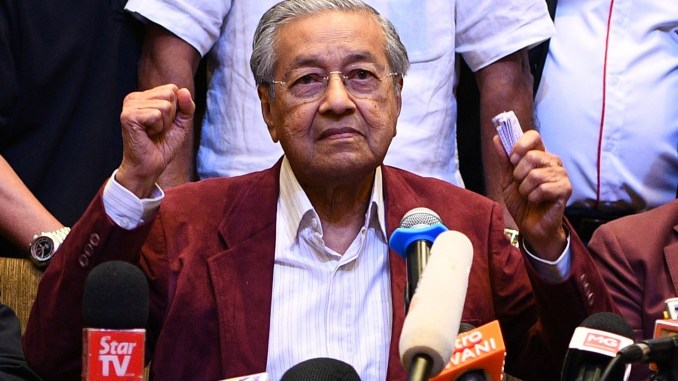On the first January of 1982, Malaysians wound their clock by 30 minutes to set the time nationwide to GMT +8.
Before then, the nation of Malaysia worked with two different times.
Peninsula Malaysia used GMT+7.30. Only the eastern Malaysia, the Borneo used GMT+8.
The plucky prime minister of that time, Dr. Mahathir bin Mohamed was rather uncomfortable with the situation and purposed to do something about it. For the sake of unity, he wanted to synchronise the two times.
He had two choices. To use the time of the much larger Peninsula or use that of Borneo with only a couple of states. Apparently the prime minister chose to go with the easier to calculate +8 instead of +7.30 of the Peninsula.
Naturally, there was a good deal of protests from those in the peninsula, but that decision was sustained and until today, Malaysia uses GMT+8 seven hours ahead of Nigeria which uses GMT+1.
Something equally radical about timing also happened in Nigeria. Although our situations were very different, I found them to be foundationally similar.
Some years before now, moon sighting was a major issue in Nigeria. Ramadan moonsighting was a time of anxiety for those who put much stock on the unity of the Ummah. So was the sighting of Zul Hijjah.
It was a time of anxiety because different states, ethnicities and sects would start their fasting at different times, and celebrate Eids on different days. Some people would celebrate Eid when pilgrims in Saudi Arabia were going for the Arafah.
It appears that those days are behind us. But the change happened so gradually that it has gone unnoticed. That, I attribute to the leadership genius of the Sultan.
Some people still do these things on different days, but moonsighting is no longer the controversy it used to be. Thanks to the gentle revolution of Sultan Sa’ad Abubakar. The revolution is so silent and barely perceptible, that many may not give him the credit he deserves.
But the Sultan was the one who stamped his authority on the announcements of dates, who regularly parleys with leaders of different Islamic organisations and who understands the times, and moulds his leadership accordingly.
Now different religious leaders, community leaders and even the people themselves admonish one another to “wait for the Sultan’s announcements.”
Now I can’t remember the last time a large part of Nigerian celebrated Sallah on the day pilgrims went for Arafah.
Some have said that he has synchronised our moonsighting with that of Saudi even though we’re on different continents.
But it’s my opinion that whatever he has done has brought greater unity, fewer arguments and less confusion to the Ummah.
It’s just as well that he doesn’t make much noise about it – effective leaders do not allow disagreements to prevent them from implementing their vision.
Mahathir himself was labelled as a bully and intolerant of dissent. But at the age of 93, he was dragged back to come and save his country.
The only difference between the two time changers is that while the Sultan of Sokoto is subtle about his change, Mahathir was in your face about it. But he can afford to do that because of the differences in their mandates. Dr. Mahathir was the head of the entire government for over 20 years while the Sultan is the leader of the adherents of only one religion.
Ultimately, the outcome is what matters. Both have achieved the stability they sought. Both went through a long history and challenges. For example, Malaysia had graple with time changes for decades; including once using Japanese time which was forced on them during the Japanese occupation of the second World War.
But it is even unthinkable now for Malaysia to consider changing the time again, the Mahathir Solution has worked for them. Just the way Sultan Sa’ad’s Solution has worked for Nigeria.
Kudos to the time changers.

 Join Daily Trust WhatsApp Community For Quick Access To News and Happenings Around You.
Join Daily Trust WhatsApp Community For Quick Access To News and Happenings Around You.


